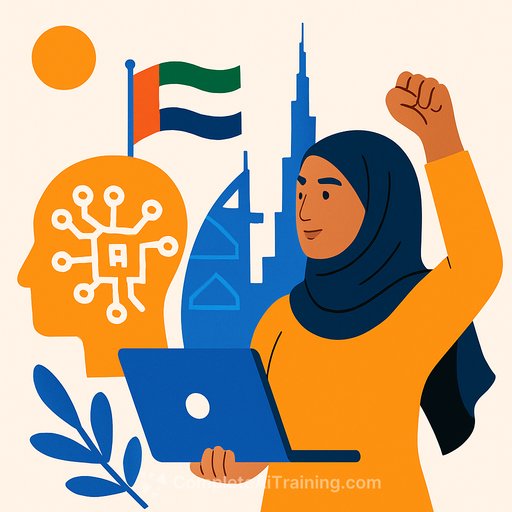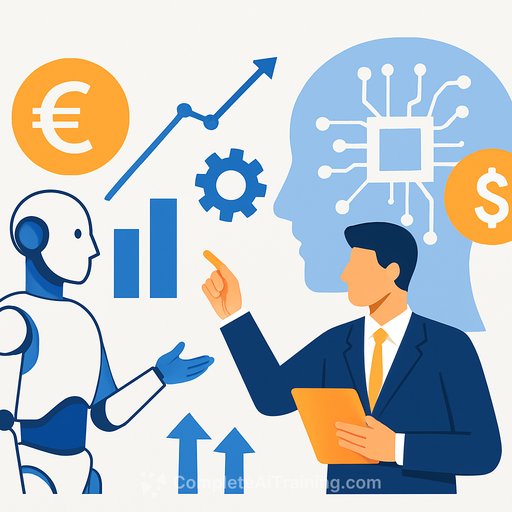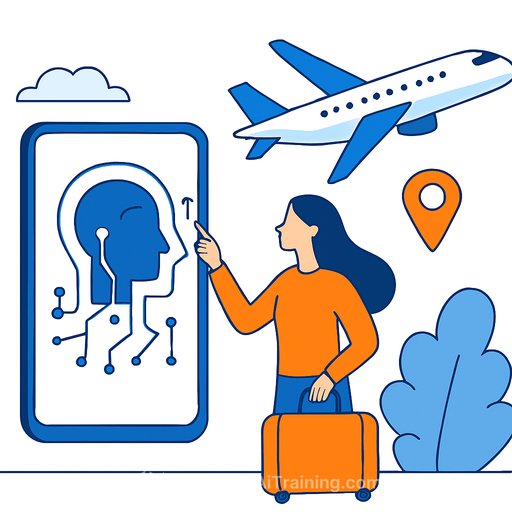The Gender Gap in AI: Why Women’s Participation Matters
Artificial Intelligence is transforming roles across fields—whether engineering, product design, customer support, or legal services. AI is embedded in healthcare, education, banking, and more. There's a growing push to “augment” careers with AI skills. Yet, a critical issue remains: women’s participation in AI is lagging behind.
Reports from the World Economic Forum and LinkedIn highlight that AI is actually widening the gender gap. Women hold fewer roles augmented by AI and more jobs that AI threatens to disrupt. Globally, women make up less than a third of AI professionals and only 18% of AI researchers. In AI training programs worldwide, women account for just 28% of enrollments.
Lessons from the UAE: A Different Approach
The UAE offers a compelling example of actively involving women in AI development. Women represent over 45% of the labor force, with a strong presence in leadership, technical, and STEM educational roles. The country boasts one of the highest percentages of female engineering undergraduates globally.
According to Aarti Mohan, Vice President of Business Applications at Oracle, the UAE’s National Strategy for AI 2031 positions women not just as users or analysts but as creators and strategists driving AI adoption across sectors like healthcare, logistics, and sustainability. This approach is expected to boost the UAE’s AI economy significantly.
Institutions like Mohamed Bin Zayed University of Artificial Intelligence (MBZUAI) report that roughly 31% of their students are female, with early-career women leading research and innovation efforts. This momentum signals growing female influence in AI research and development.
Why Women’s Voices in AI Are Crucial
The lack of gender diversity in AI research often leads to biased systems that reinforce stereotypes and overlook inequalities. In the UAE, women are taking on critical roles—designing models, selecting training data, and developing testing protocols that shape AI’s accuracy and societal impact.
- Neha Sengupta, Principal Applied Scientist at G42, has contributed to Arabic natural language processing models, supporting the UAE's AI-driven healthcare advancements.
- Umaima Rahman, a medical imaging researcher, focuses on AI solutions that are inclusive and clinically meaningful.
- Daniya Najiha Abdul Kareem emphasizes amplifying women’s voices in AI research, policy, and applications to position the UAE as a global AI leader.
Increasing women’s participation is not just about fairness; it enhances AI accountability and helps reduce risks of bias and manipulation.
Businesses Driving Gender Inclusion
Studies show that women often consider a broader spectrum of stakeholders in AI decisions, including environmental and societal impacts. Recognizing this, UAE’s government and businesses are prioritizing gender diversity in AI leadership and technical roles.
Key leaders include Dr. Najwa Aaraj (Technology Innovation Institute), Dena Almansoori (e&), Xi Liang (Mashreq), and Moza Omar Al Futtaim (Al-Futtaim Group). They agree that gender parity requires getting more women into leadership roles.
Al-Futtaim, for example, integrates gender inclusion into its AI strategy aligned with national goals. Initiatives include partnerships with Microsoft and LinkedIn to upskill women for digital roles. Their Chief AI Officer, Moza Al Futtaim, exemplifies how inclusive leadership drives innovation and equitable AI development.
Prof. Elizabeth Churchill from MBZUAI highlights that diverse teams are essential to reducing bias and fostering innovation. The UAE’s commitment to female education and leadership reflects this understanding.
Empowering Women in AI: Initiatives and Opportunities
Several programs aim to boost women’s AI skills in the UAE. Oracle and the Dubai Business Women Council launched “sAIdaty,” which has already trained 500 women professionals and entrepreneurs in AI. The initiative now offers professional AI certifications to support women entering the IT industry.
Another example is the “Nomu Al Ghurair: Women in AI” program, a fully funded machine learning specialization launched by Zaka and the Abdulla Al Ghurair Foundation.
Addressing gender disparity requires more than training—it means encouraging women to use AI tools daily and ensuring their perspectives shape AI development. This helps prevent AI from perpetuating biases, such as skewed recruitment algorithms or gendered career advice.
Women researchers like Umaima Rahman are sharing their experiences and inspiring others through initiatives like podcasts aimed at young women entering AI fields.
Conclusion: Closing the Gender Gap in AI Benefits Everyone
Increasing women’s participation in AI is essential for creating fair, accurate, and socially responsible systems. While challenges remain, the UAE’s example shows that targeted strategies can empower women to lead in AI research, policy, and industry.
For product development professionals, this means fostering diverse AI teams is not just ethical but practical. Diverse perspectives lead to better decision-making, reduced bias, and stronger innovation.
To explore AI skills that can enhance your product development career, consider visiting Complete AI Training’s latest courses.
Your membership also unlocks:






